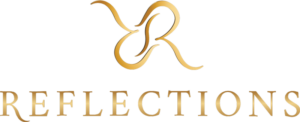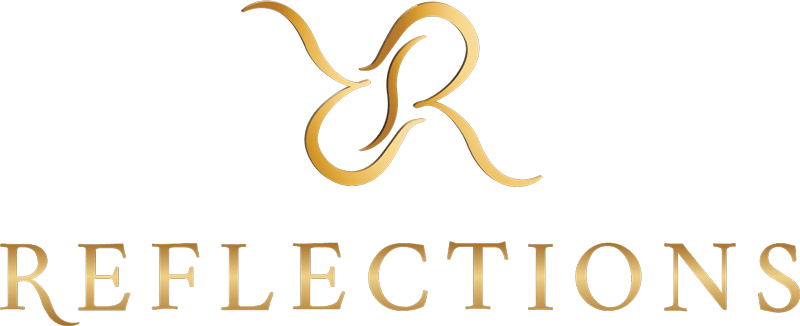Over 16 million people misused their prescription medication last year. The reasons people abuse prescription drugs vary, but one of the main reasons is that these drugs are common and also legal.
People often get addicted to prescription painkillers without realizing it. Doctors often prescribe these medications for someone after an accident or injury, and then the individual becomes dependent on the medication.
Common prescription medications that can lead to addiction include opiates, sedatives, and stimulants. If you’re concerned you or someone you love may have developed an addiction, it’s important to recognize the signs and symptoms.
Here’s a guide to the signs of prescription drug abuse.
Understanding Prescription Drug Misuse
If you are using medications in a manner not intended by your doctor, it’s considered prescription drug misuse. This may include taking someone else’s medication, taking more than prescribed, or using the drug to get “high.”
Misusing prescription medications is dangerous. It can lead to very serious consequences, some of which are life-threatening.
Prevention and early intervention are key to combating prescription drug misuse. Early identification can prevent someone from falling into addiction.
It’s important to recognize the signs of misuse, which can present with a variety of physical symptoms and behavioral changes.
Unusual or Dishonest Behavior
When someone has a drug addiction, they typically begin to display unusual behavior in an attempt to cover up the fact they have an addiction. They may lie about being sick to stay home from work, obsess over finding new doctors, or make excuses to get out of events or other responsibilities.
A once honest individual may become manipulative and secretive as they try to manage their addiction. They may become more distant or quiet. They may deny they have a problem.
If you suspect someone you love is abusing prescription drugs, watch for behavior changes and changes in their normal routine. You may notice they are staying out late at night, ignoring personal hygiene, or experiencing problems at school or work.
They may display secretive behavior or anger easily when you confront them about their drug use.
Gender Can Be a Risk Factor
Prescription drug misuse is a rapidly escalating problem in the United States, and this is especially true for women. Although more men use these types of drugs, women are more likely to fall into a pattern of misuse and abuse.
Deaths from opioid misuse have skyrocketed in the U.S. over the last several years. Men and women suffer from addiction. It occurs in people from all walks of life and socioeconomic levels.
Certain populations, including youth, women, and older adults, are at higher risk for prescription drug abuse. It’s critical to understand these individuals are vulnerable and take the necessary preventative measures to address the issue.
Financial Problems
Sudden financial changes can be a key indicator of a drug problem. As addiction escalates, the need for the drug of choice increases to create the same effects.
They begin purchasing the drug in higher volumes, and getting the drug begins to consume their thoughts and time. They may resort to lying or stealing from family and friends to fuel their addictions.
They may fall behind on bills or even get evicted as the addiction begins to take over their life.
Personality Changes
Personality changes are a common sign of drug use. At first, these changes can be subtle. You may notice something is a little off but disregard it.
You may not realize the severity of the problem until someone has a full-blown addiction. They may be moody, angry, or disengaged.
They may isolate themselves, request privacy, withdraw from favorite activities, and stay out late at night. They may become very angry or emotional if you bring up the topic of their drug use.
They may be ashamed of the problem and try to hide it. If you notice a loved one more withdrawn or volatile than usual, it could be a sign that something is seriously wrong.
Most people who are abusing prescription drugs cannot quit on their own. They need professional substance abuse treatment to stop using and achieve long-term success.
Physical and Behavioral Signs of Prescription Drug Abuse
Some of the most commonly abused drugs include OxyContin, Vicodin, Valium, Xanax, Ritalin, and Dexedrine. Sedatives often cause dizziness and drowsiness. They can also lead to confusion and memory loss.
Stimulant abuse can lead to insomnia, weight loss, restlessness, and rash behavior. Opiates can lead to low blood pressure, sweating, confusion, and depression.
When you combine any of these addictive substances with other drugs or alcohol, the symptoms will often intensify.
Social Isolation or Withdrawal
People often begin to neglect their everyday responsibilities, sleep longer than usual, hang out with a different crowd, or isolate themselves as their addiction advances.
Losing interest in school, work, or favorite hobbies can be a sign something is seriously wrong. The individual may become more withdrawn, anxious, depressed, or even paranoid because of their addiction.
Escalation and Tolerance
One key sign of prescription drug addiction is an increase in drug use. This often stems from a growing tolerance for the drug.
Drug tolerance occurs when a medication loses its initial effect and you need higher doses to achieve the same effect. The individual will begin consuming more and using it more frequently, which only escalates their addiction.
Escalating drug usage is dangerous. Consuming large amounts increases the risk of serious health problems or death. This behavior can also strain personal relationships, disrupt your work and personal life, and harm your mental health.
Most Abused Prescription Drugs
Prescription medication abuse is a serious problem in the U.S. Doctors sometimes overprescribe drugs, and many people don’t realize the link between prescription drugs and addiction.
Some of the most abused prescription drugs include:
- Oxycodone: A highly addictive opioid for pain
- Adderall: A stimulant often prescribed for ADHD
- Morphine: An analgesic pain medication
- Ativan: A benzodiazepine that treats anxiety
- Ritalin: Brand name for the stimulant methylphenidate used for ADHD
- Xanax: Brand name for alprazolam used to treat anxiety and panic disorders
There are a variety of signs and symptoms of prescription drug abuse. These include:
- A lack of concentration
- Nausea
- Fatigue
- Paranoia
- Pain
- Slurred or slow speech
- Memory loss
- Changes in breathing
- High blood pressure
- Dizziness
- Insomnia
- Constipation
- An irregular heartbeat
- Weight gain or loss
The physical symptoms of prescription drug addiction may resemble other medical conditions. That can make identifying an addiction challenging.
A pattern of physical symptoms coupled with behavior changes is a good indication of an addiction issue. Identifying the signs of addiction early is best for preventing long-term damage.
There are behavioral signs and symptoms of prescription drug abuse. These include:
- Requesting a prescription early
- Seeing more than one doctor at a time for the same problem
- Experiencing mood swings
- Having financial problems
- Asking to borrow money
- Selling possessions
- Taking frequent trips to the bathroom
- Experiencing family or relationship problems
- Withdrawing from activities or social situations
- Acting more aggressively or recklessly
- Being secretive about how they’re spending their time
- Putting the Balme on others
- Denying they have a problem
- Anger and hostility
Someone abusing prescription drugs may have trouble keeping a job or maintaining a relationship. Their drug dependency begins to come first and take over their life.
Withdrawal Symptoms
Withdrawal symptoms are another sign of prescription drug addiction. Withdrawal occurs when an individual reduces their dosage or stops using the drug.
The symptoms can vary, depending on the individual’s level of dependence. Some common withdrawal symptoms include:
- Nausea
- Vomiting
- Fatigue
- Body aches
- Insomnia
- Dilated pupils
- Goosebumps
- Yawning
- Sweating
- Mood fluctuations
- Shakiness
- Increased heart rate
- Anxiety
- Fever
- High blood pressure
- Depression
- Hallucinations
- Seizures
Consequences of Long-Term Prescription Drug Addiction
Prescription drug misuse can have life-altering long-term consequences. Continued abuse of prescription drugs, especially in high doses, can lead to various serious health problems, including the risk of death.
Some possible health issues include:
- Cardiovascular problems
- Mental health issues
- Respiratory conditions
- Increased risk of disease, including HIV/Aids, cancer, and hepatitis A/B
Social implications of long-term prescription drug abuse include:
- Housing instability
- Involvement in criminal activities
- Possible incarceration
- Homelessness
These serious consequences underscore the need to address prescription drug misuse early and effectively.
Dangers of Hiding an Addiction
It is not unusual for people to try to hide their addiction. Doing this can keep you from getting the help you need.
Hiding an addiction can isolate you from the people who care the most about you and can provide much-needed support. The constant lies and deception it takes to hide an addiction can strain or even destroy your important relationships.
The longer someone struggles with a prescription drug addiction, the greater the risk becomes. Ongoing addiction harms your physical, psychological, and emotional well-being.
Supporting Someone Who Is Abusing Prescription Drugs
It can be difficult to support someone with an addiction. They may be resistant to your help. Here are some steps you can take to steer them towards treatment.
- Approach them with concern and without judgment
- Listen to their thoughts and feelings
- Be prepared for pushback or resistance
- Do not get into an argument or allow the conversation to get heated
- Express your concern and offer emotional support
- Engage in an open discussion about available treatment options
- Encourage them to seek professional help
Prescription Drug Abuse Treatment
There is treatment available for prescription medication addiction. These treatments include:
Inpatient Rehab
Drug rehab offers someone with an addiction the opportunity to start over free from addiction. When you enter rehab, you begin to learn new techniques for managing your addiction.
Not all drug rehab centers are the same. A treatment center that offers custom therapies and ongoing support is best. The process begins with medically- supervised detox.
Addiction treatments vary based on the drug and the severity of the addiction. It’s a great first step toward a new life and a healthier future.
Outpatient Rehab
Outpatient rehab allows some people to get addiction treatment without entering a treatment center. They can schedule a rehab program to fit their schedule and needs.
This can be a good choice for some people with family or work commitments. This type of therapy won’t work for everyone. A successful outpatient treatment program involves medication-assisted detox, medical care, and psychiatric services.
Counseling
Counseling is a fundamental part of addiction treatment. A licensed alcohol or drug counselor provides individual, group, or family therapy sessions to address the root cause of the addiction.
A counselor can help you learn new skills and strategies to identify triggers, resist cravings, and prevent relapse. They can help you prepare for a drug-free life after addiction treatment.
Medication-Assisted Therapy
Quitting drugs on your own without any medication can be a difficult road. Effective treatment involves medication-assisted detox to minimize the stress and discomfort of detox.
Individuals may require ongoing drug therapy to minimize the chance of relapse or deal with underlying mental health issues.
Family-Based Therapy
When one family member has an addiction, it affects the entire family. Families often need help and support to heal after a loved one begins addiction treatment.
A quality rehab center supports family members and helps them learn healthy ways they can use to support their loved one battling addiction.
Aftercare
Addiction treatment doesn’t end when you leave the rehab center. The hard work of staying sober begins.
It’s an ongoing process where the individual battling addiction will face ongoing temptations and frustrations. An aftercare program offers support that may include medical evaluations or a referral to a sober living home.
Get Help for Prescription Drug Abuse
An addiction to prescription drugs can develop quickly. If you are taking more medication than you need or attempting to get more medication than you were prescribed, you may need substance abuse treatment.
If you recognize the signs of prescription drug abuse in yourself or a loved one, there is hope and help available.
At Reflections, our licensed doctors, therapists, and healthcare practitioners provide a range of treatments and support for every stage of addiction recovery.
We offer clinical programs devoted to the successful rehabilitation of psychological dependency.
Reach out today with questions or to begin your addiction treatment.








